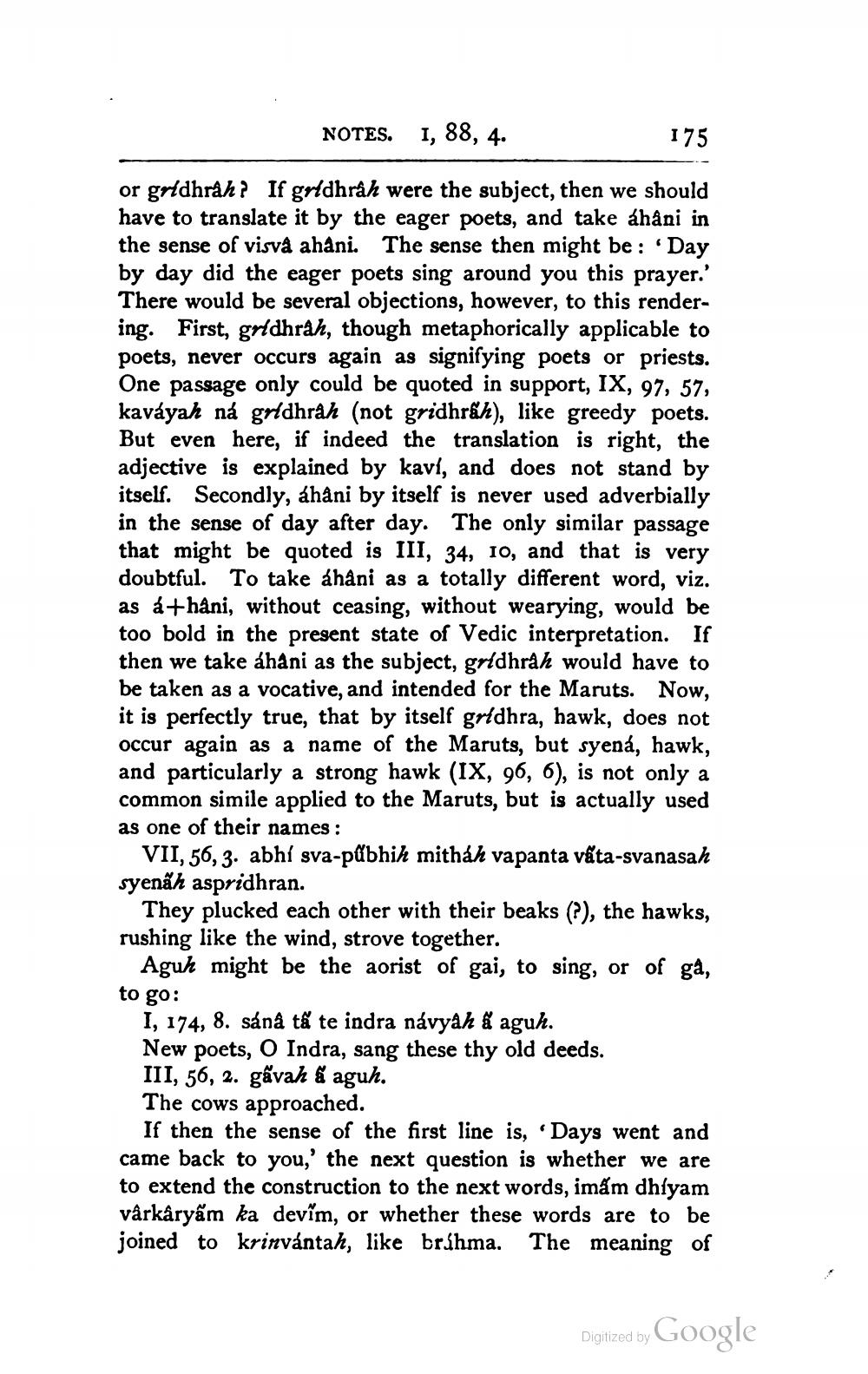________________
NOTES. 1, 88, 4.
175
or gridhrah? If grldhrâh were the subject, then we should have to translate it by the eager poets, and take áhåni in the sense of visva ahani. The sense then might be : Day by day did the eager poets sing around you this prayer.' There would be several objections, however, to this rendering. First, gridhrah, though metaphorically applicable to poets, never occurs again as signifying poets or priests. One passage only could be quoted in support, IX, 97, 57, kaváyah na grldhrah (not gridhrah), like greedy poets. But even here, if indeed the translation is right, the adjective is explained by kavi, and does not stand by itself. Secondly, áhâni by itself is never used adverbially in the sense of day after day. The only similar passage that might be quoted is III, 34, 10, and that is very doubtful. To take áhâni as a totally different word, viz. as áthâni, without ceasing, without wearying, would be too bold in the present state of Vedic interpretation. If then we take áhani as the subject, gridhrah would have to be taken as a vocative, and intended for the Maruts. Now, it is perfectly true, that by itself gridhra, hawk, does not occur again as a name of the Maruts, but syena, hawk, and particularly a strong hawk (IX, 96, 6), is not only a common simile applied to the Maruts, but is actually used as one of their names :
VII, 56, 3. abhí sva-påbhih mithah vapanta vấta-svanasah syenáh aspridhran.
They plucked each other with their beaks (?), the hawks, rushing like the wind, strove together.
Aguh might be the aorist of gai, to sing, or of ga, to go:
I, 174, 8. sánå tå te indra návyah & aguh. New poets, O Indra, sang these thy old deeds. III, 56, 2. gấvah & aguh. The cows approached.
If then the sense of the first line is, Days went and came back to you,' the next question is whether we are to extend the construction to the next words, imam dhiyam värkaryam ka devím, or whether these words are to be joined to krinvántah, like brihma. The meaning of
Digitized by
Digitized by Google




